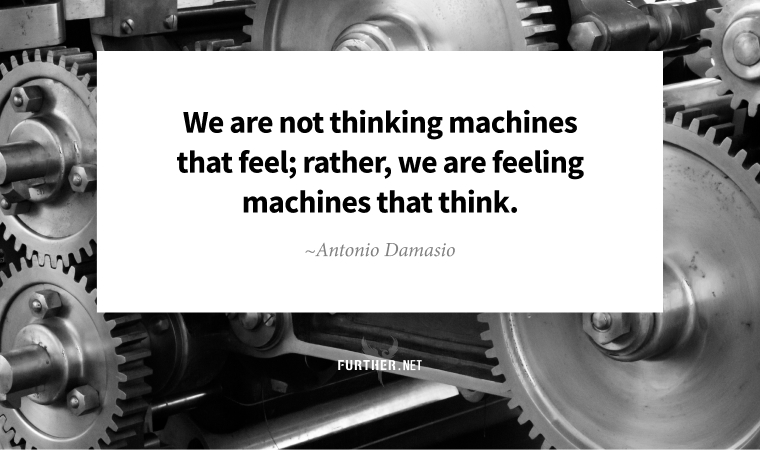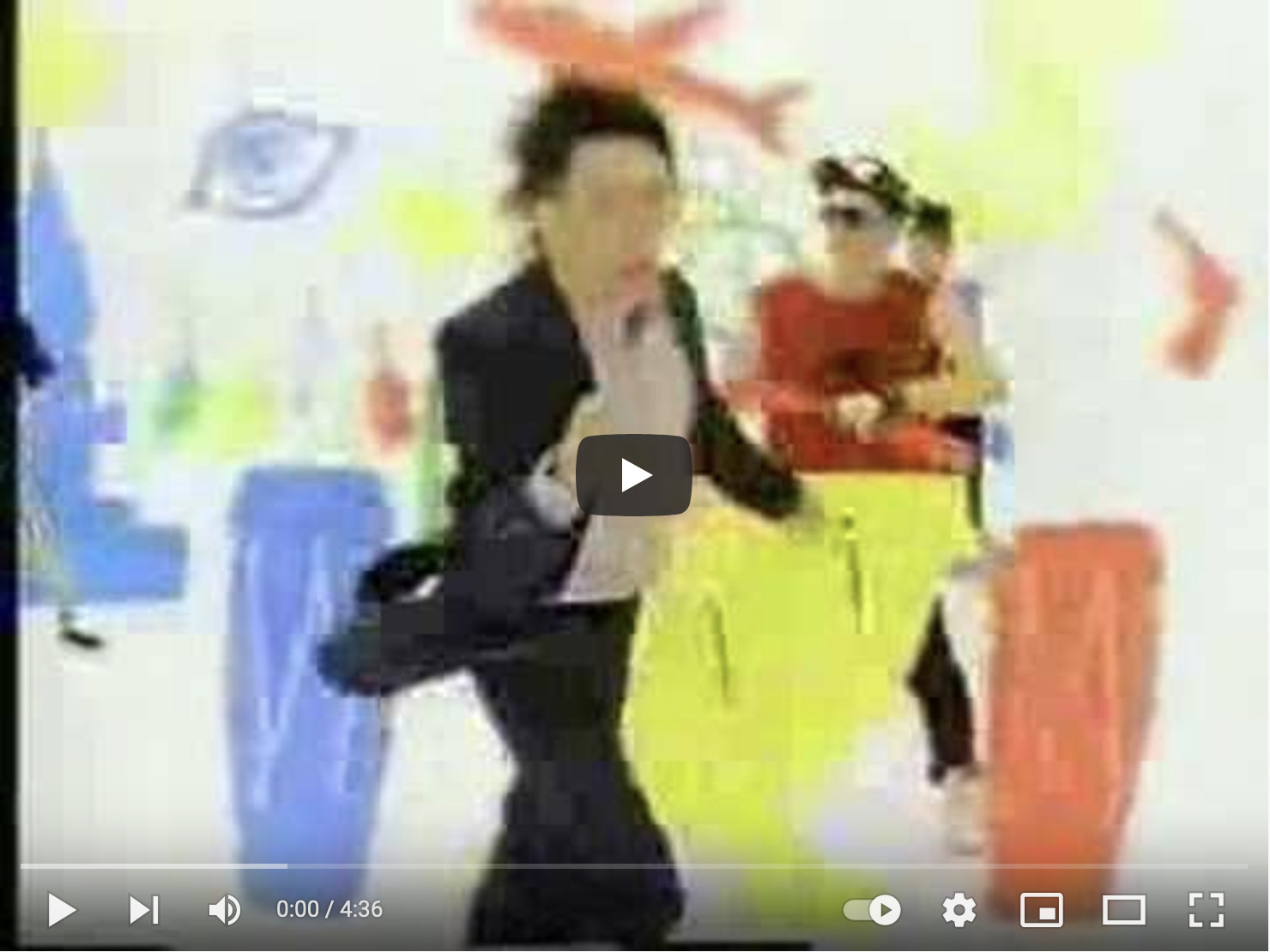
The headline above is the first line of 52-year-old Dave Grohl’s unconventional new memoir, The Storyteller: Tales of Life and Music.
Here’s the full first paragraph:
Sometimes I forget that I’ve aged. My head and my heart seem to play this cruel trick on me, deceiving me with the false illusion of youth by greeting the world every day through the idealistic, mischievous eyes of a rebellious child finding happiness and appreciation in the most basic, simple things.
Dave Grohl was one-third of the band that gave us our generation’s anthem. And it seems he stepped into the role of the voice of a generation when his friend and band mate tragically departed in 1994.
Props to Grohl for actually writing the book himself, quite well given he was a high school dropout and self-described “terrible student.” Contrast that with rock memoirs that come into existence thanks to, in Grohl’s own words, “4 hours of interviews, find someone else to write it, put your face on the cover, and voila!”
Dave began playing guitar at age 10, and discovered he could learn music by ear. But it was his first punk rock show during a visit to Chicago that convinced the kid that he too could be in a band.
Up until Foo Fighters, Dave was defined by punk rock. And even though his current music is best characterized as “Dad rock,” you won’t hear him trying to hang on to some form of hipster cred.
“I’m the earnest, sort of eager rock ’n’ roll dude who like is annoyingly happy, and I’ve taken the danger out of rock and roll,” he says. “But there’s a part of me that’s like, do you want me to put it back in? Because I’ve seen what it’ll do.”
Copy that, loud and clear. I don’t think we need any more darkness given the lead singers of Dave’s specific era we’ve lost. Kurt Cobain, Layne Staley, Scott Weiland, Chris Cornell, Chester Bennington … all tragically foreshadowed by the 1990 death of Andrew Wood from Mother Love Bone, the band that became Pearl Jam.
Of course, Storyteller has to deal with Cobain’s untimely passing. And you can tell it still hurts.
Grohl begins the chapter about Cobain’s suicide — the most difficult part of the book to write — with the words, “He’s gone, Dave.”
What The Storyteller ultimately reveals is in many ways what we already know. Dave is a genuinely good guy who views his journey with an awe and sense of gratitude that’s invigorating. He’s the happily married father of three who just happens to be the lead singer of a band that’s won Best Rock Album at the Grammys multiple times.
And oh yeah … the drummer from Nirvana. The cool thing is he’s still obsessed with music just as he was when relentlessly strumming that guitar at age 10.
One reviewer called him “rock’s Tom Hanks.” Everyone likes Dave, and if you run across someone who doesn’t, well … run. But would the more cynical Kurt Cobain approve of where Grohl has ended up? Dave thinks so.
“He’s always smiling in my dreams,” Grohl says. “So I take that as a good sign.”
Storyteller is a great read because it’s incredibly refreshing that perhaps the most prominent Gen Xer around is genuinely excited to continue to create and have fun. Beyond that, though, I think there’s something to “forgetting that we’ve aged.” We’ve done what we were “supposed to do” as adults, but what now?
What would it take to wake up each day with the earnest obsession of a 10-year-old you?
What would that look like specifically?
What’s standing in your way?
The Storyteller: Tales of Life and Music (Amazon Associates)
Keep going-
P.S. New to Further? Join us here.
Know Thyself
Most of us are owned by thoughts, urges, and emotions. And that’s because we walk around completely unaware, at least consciously, of a thunderously obvious fact — which is that we have minds and are thinking.
Representing the 331
The author of this piece recently stumbled into an evening routine that has dropped his constant anxious boil down to a manageable simmer. Like anything else in the world of mental and emotional health, it’s not a panacea. But it is effective, at least for him.
How the 3-3-1 Rule Can Help You Fall Asleep Quickly and Reduce Anxiety
Hair Today …
By observing mouse hair follicles, scientists discovered an unexpected mechanism of aging. “If I didn’t see it with my own eyes I wouldn’t believe it,” one said.
Losing Your Hair? You Might Blame the Great Stem Cell Escape
Early Salad Days
I’m likely more of a fan of salad than most, but I tend to be firmly into eggs for breakfast. This article makes the case for eating salad instead. Salads are filling, simple, and most importantly, they help kickstart the day with a slight superiority complex.
You Should Eat Salads for Breakfast (Wait, Don’t Leave)
Florida, Man
This article has a combination of humorous and practical reasons why the stereotypical retirement destination of Florida is not really an option. I think they list 11 more reasons than I needed … I was done at Florida.
11 Reasons You Don’t Want to Retire in Florida
How to Stop Stressing About Anxiety

By Trudi Roth
Nowadays, it seems everyone is talking about anxiety, from agoraphobia and social anxiety to eco-anxiety and “coronophobia.”
Of course, it doesn’t take an impending apocalypse to trigger an anxiety disorder. The Anxiety and Depression Association of America reports 40 million American adults are affected by this common mental illness. And while it’s highly treatable, less than 37% seek help.
I’m one of those people who’s grappled with anxiety my entire adult life. It’s why I started meditating and ultimately became a teacher, as studies show meditation is one of the best ways to beat stress.
I’m also a writer, so I choose my words carefully — notice I said stress. To combat anxiety effectively, you’ll likely also need some “eyes-open” weapons to slay that beast.
Stress vs. Anxiety
While stress and anxiety are related, they’re not the same. Stress is a normal neurological response where the fight-flight-freeze function is triggered by a threatening event (i.e., a rabid dog or ornery client) to keep you safe. Stress chemistry, notably adrenaline and cortisol, activates your sympathetic nervous system to get your heart, lungs, and legs pumping at the expense of “non-essential” systems (i.e., digestion, immunity).
Anxiety is also felt in your body, but it’s actually all in your head. When thoughts continuously activate the stress response, you begin to experience symptoms like exhaustion, muscle tension, headaches, immune suppression, and gastro-intestinal issues — the hallmarks of anxiety.
While our bodies are built to recover from acute stress, they were not built for prolonged stress.
Your brain is wired to keep the stress response rolling. That’s why meditation is so relaxing: it activates your parasympathetic nervous system (“rest and digest”) and gives you the space to differentiate between your thoughts and reality.
That said, habituated emotional responses are stored in your body’s cells, holding the muscle memory of stress. This can still unleash symptoms like muscle tension, racing heartbeat, and headaches, telling your brain you’re not totally safe — even if you regularly meditate.
Time to bring in reinforcements.
Keep Calm and Carry On
There are loads of scientifically proven ways to break the cycle of anxious reaction by continuously engaging your body’s calming systems.
- Take walks
- Practice yoga
- Have fun: dance, laugh, sing
- Do breathing exercises
- Try other Eastern stress-release practices, like acupuncture and reiki massage
- Stimulate your vagus nerve by gargling, taking a cold shower, or laying on your back, nose in the air, and moving your eyes from left to center to right
- Get help from a therapist or other trained practitioner
Finally, I can’t stress this enough: self-care is essential, and it goes well beyond bubble baths or a night out. Don’t wait until your neurology rages: be the calm, and skip the storm.
I Thought Meditation Would Fix My Anxiety – Here’s Why It Wasn’t Enough (Tiny Buddha)
further: flashback
 Information Society – What’s On Your Mind (Pure Energy)
Information Society – What’s On Your Mind (Pure Energy)Information Society, 1988
What’s On Your Mind remains as brilliant a song as it was when it stormed dance floors in the summer of ’88. While you can’t escape the pervasive sample of Mr. Spock saying “pure energy,” don’t miss two other Star Trek samples from Dr. “Bones” McCoy and the android Norman from the episode “I, Mudd.” (YouTube)
further: sharing

Further subscribers earn cool gear simply by referring friends to join the newsletter. Get your own free weekly dose of health, wealth, travel, and happiness advice here.
Thank you for sharing Further!
